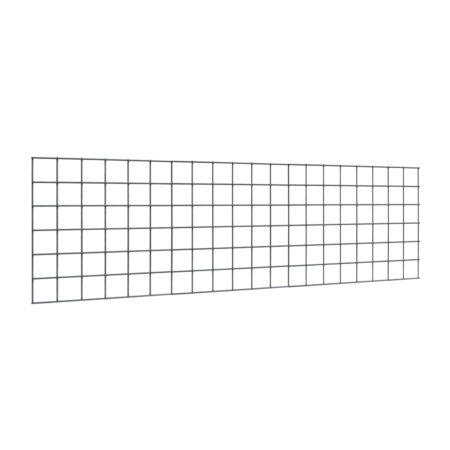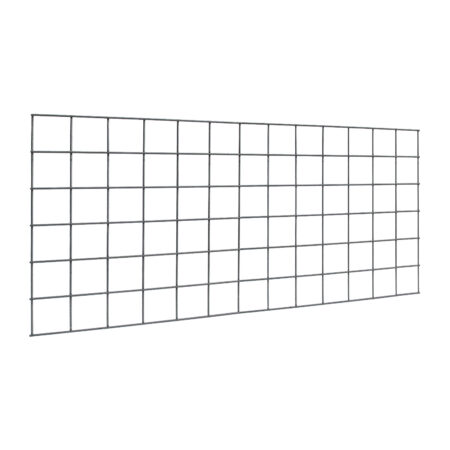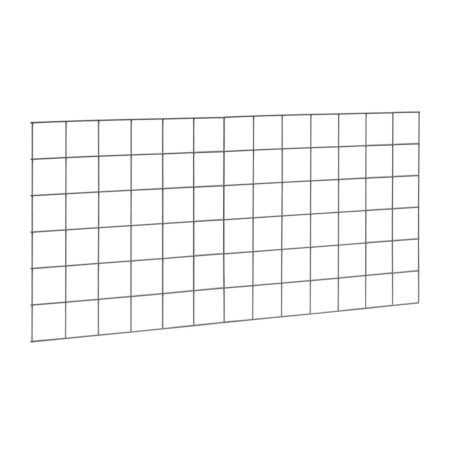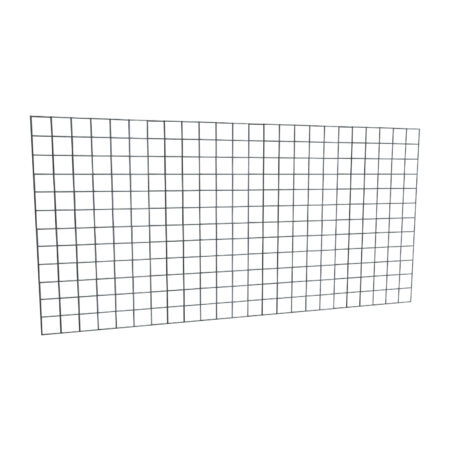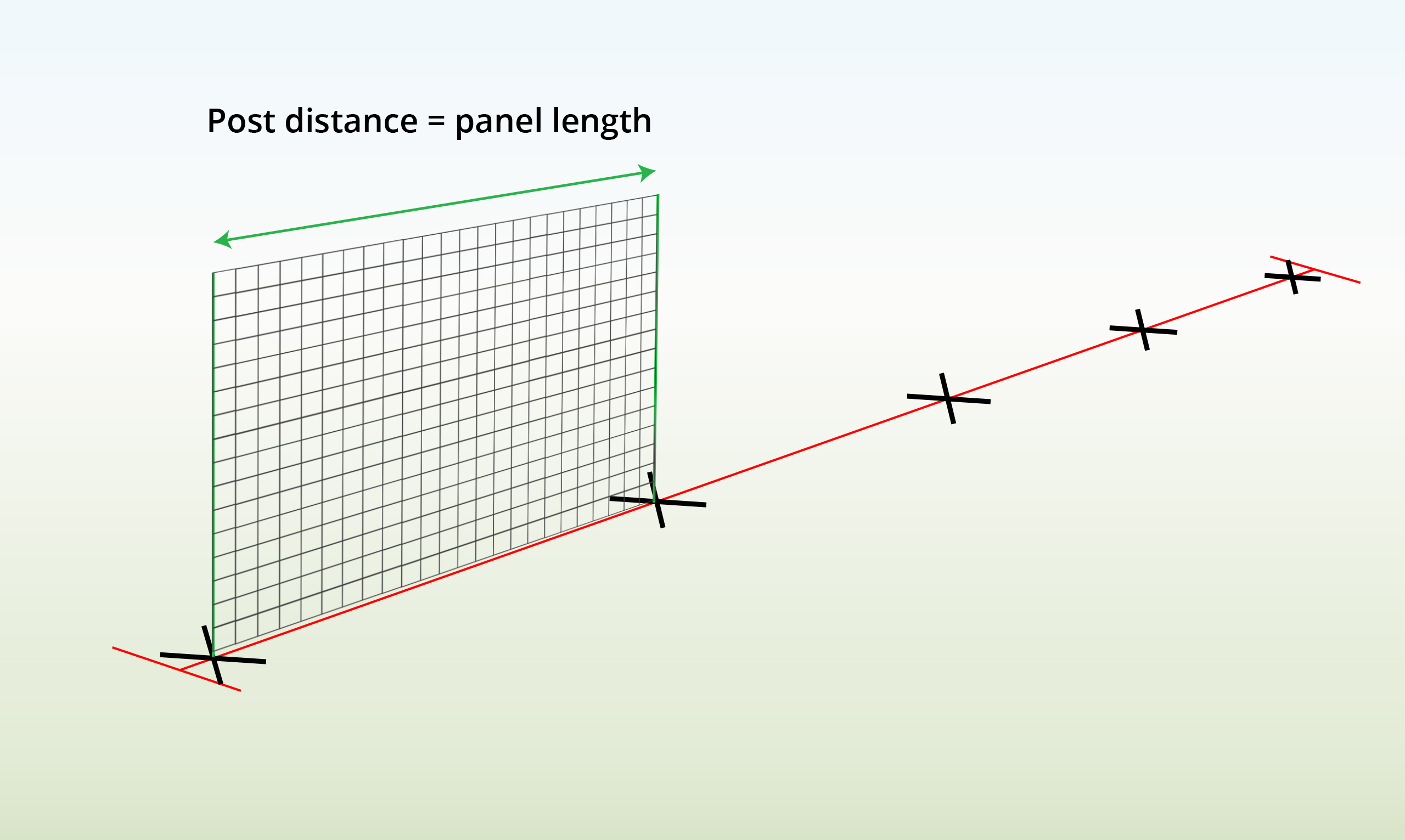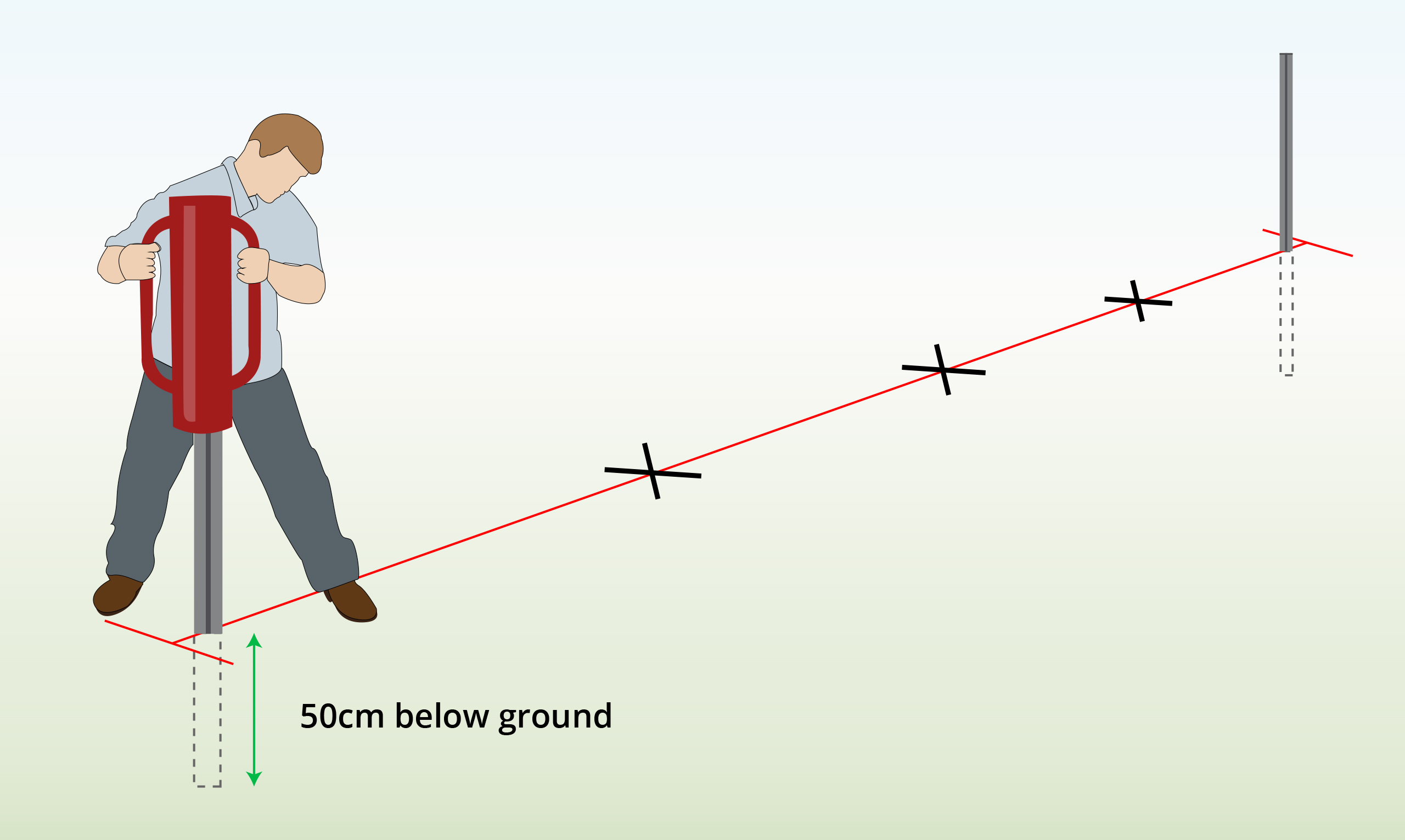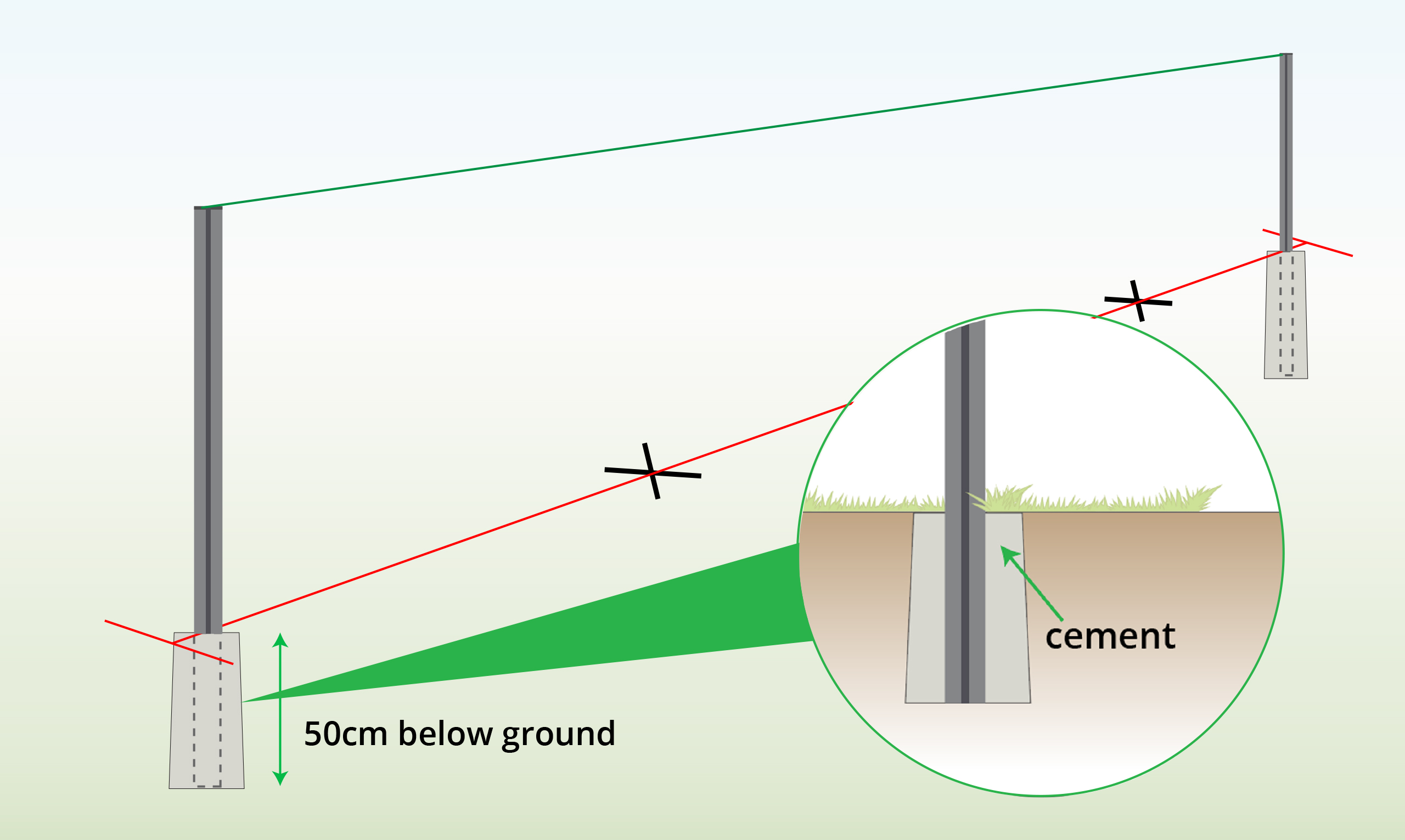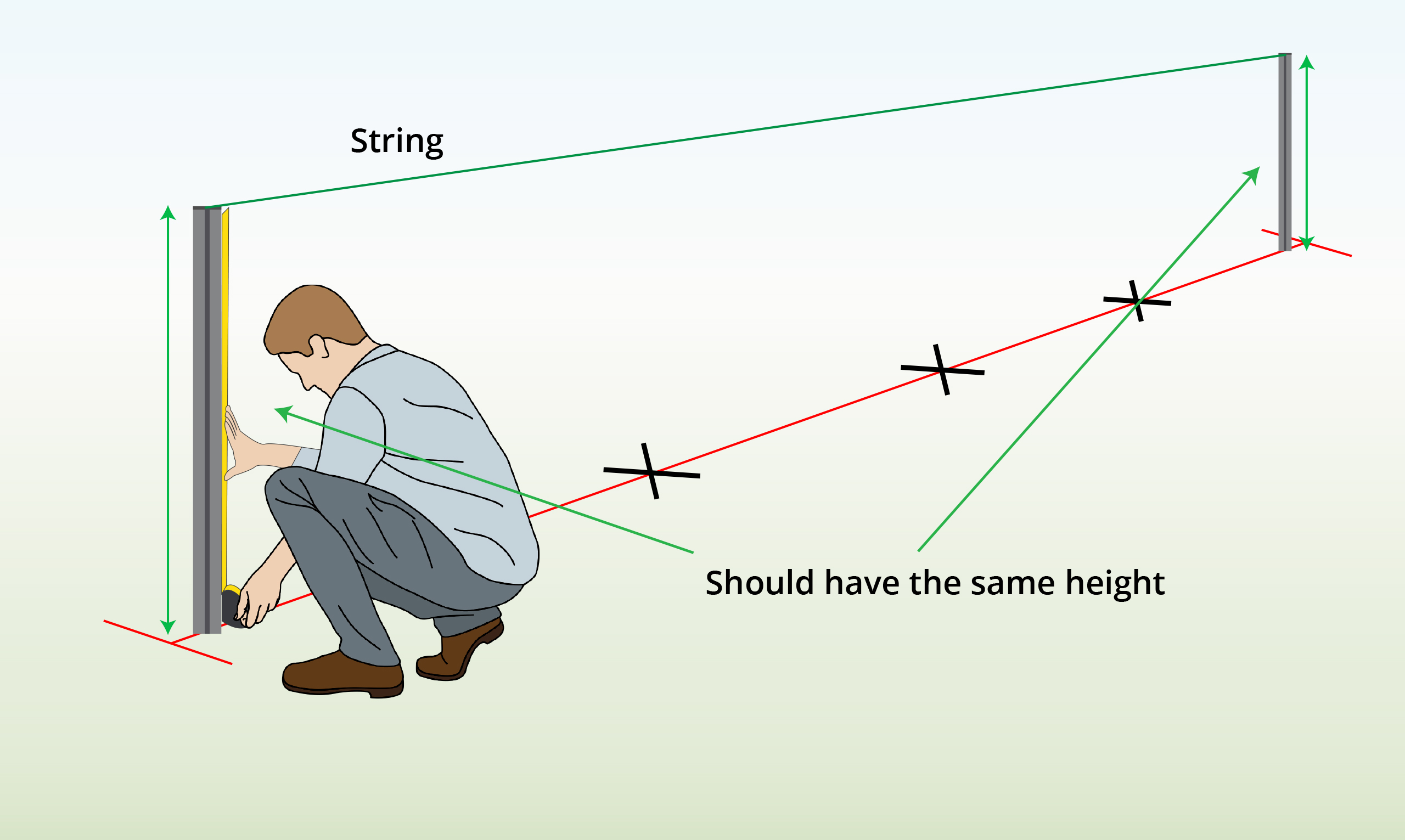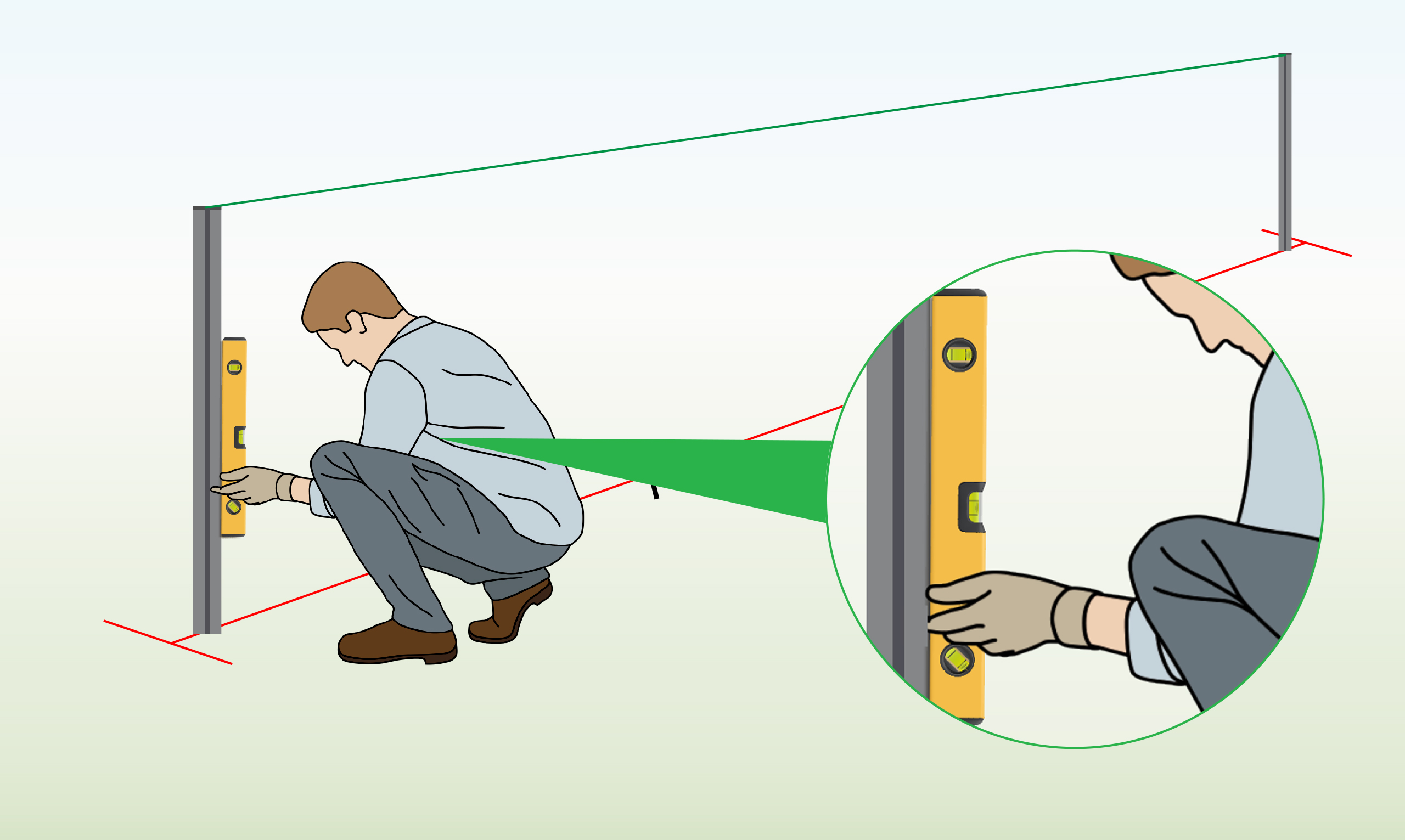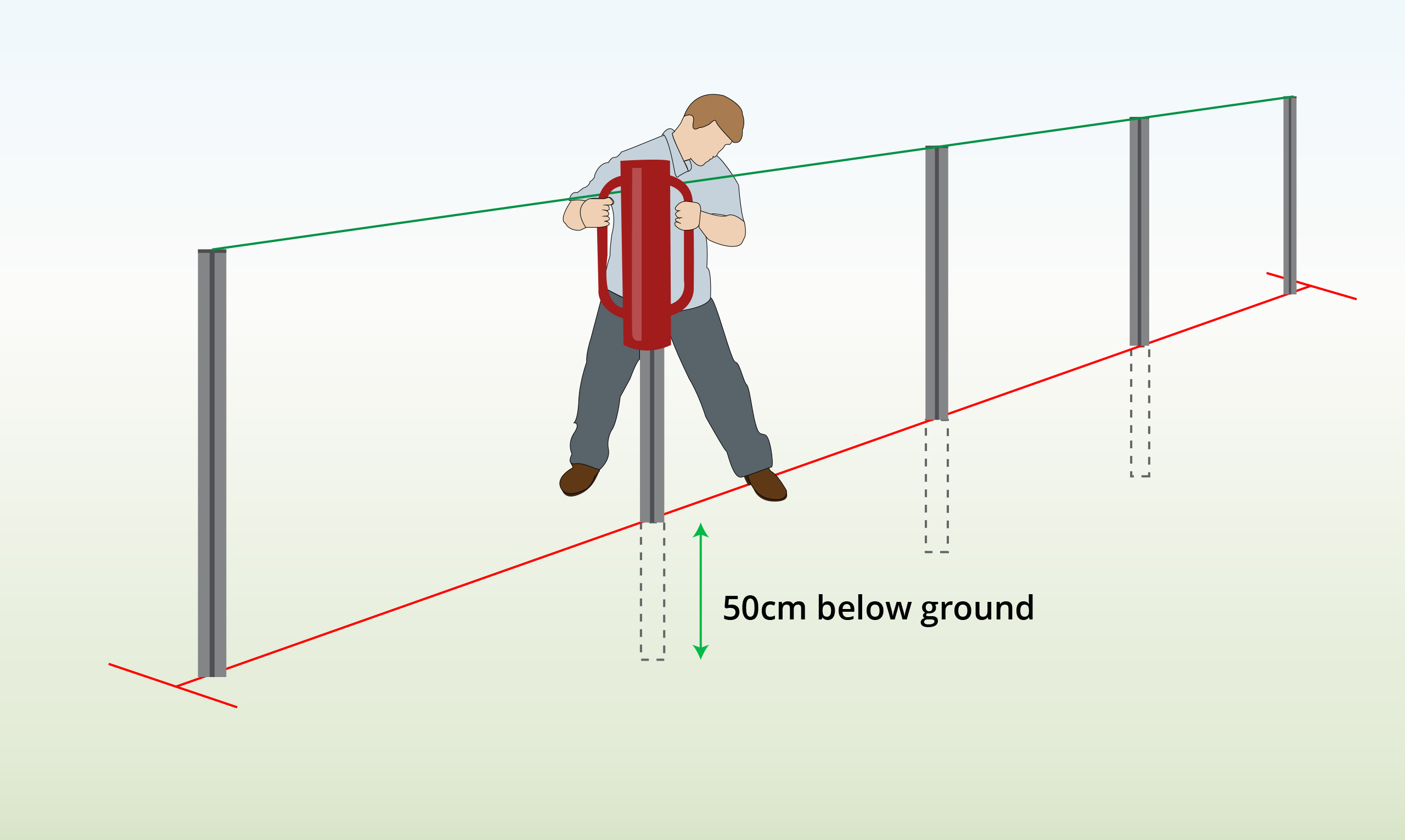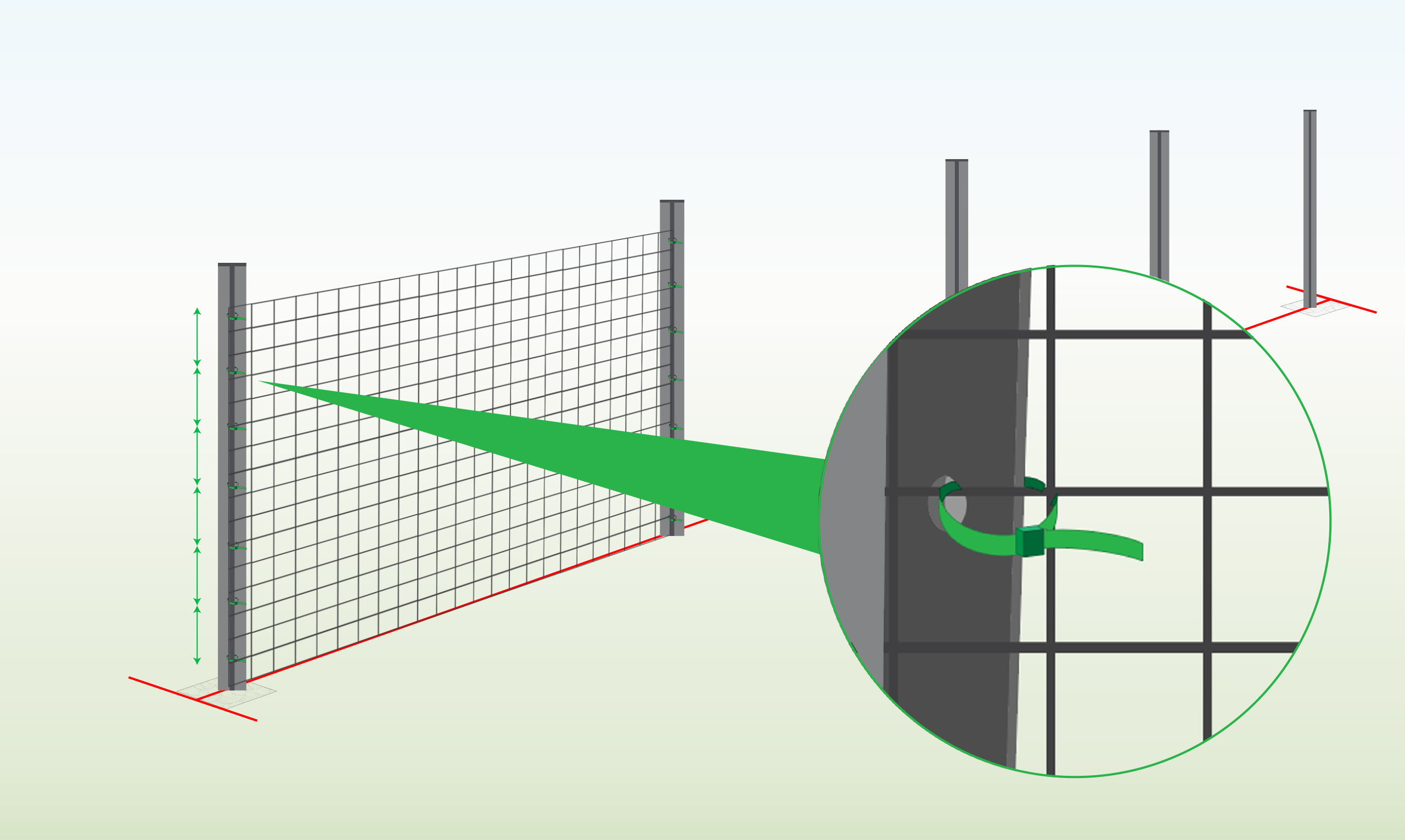Wire Mesh Panels
Galvanised steel wire mesh panels, long-lasting for a wide range of uses including animal cages, plant climbing, garden fencing, automotive and agricultural sectors.
We advise you order a minimum quantity of x3 panels to prevent damage during transit.
- Manufactured in the UK, to BS EN standards.
- Available up to 6.5ft high
- Starting from £4.99
Customer Images
Helpful Wire Panel Information
Attachments
| Attach to: | How to: |
| Wood/ Wooden Posts (Staples) |
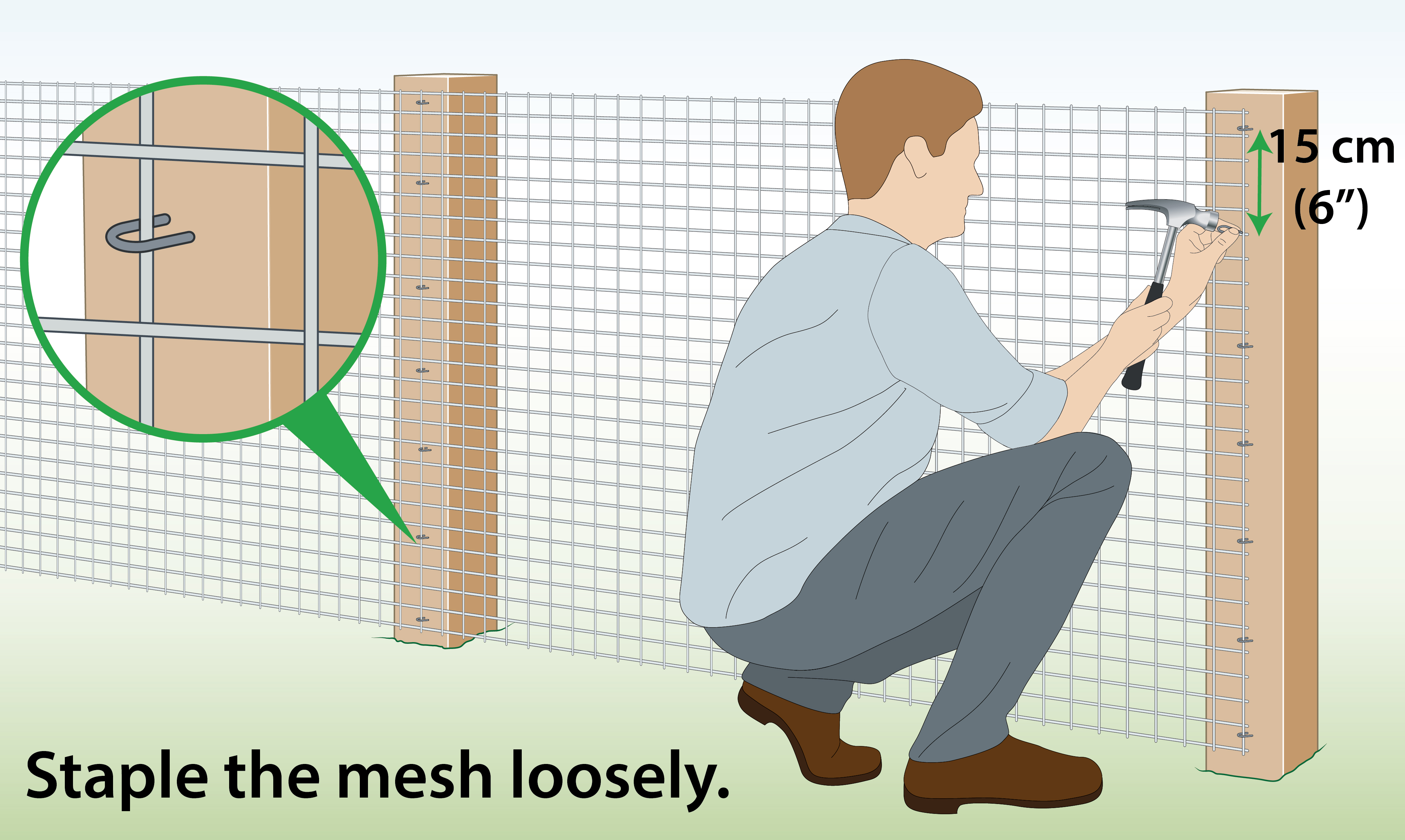 |
| Metal/ Metal Posts (Cable ties) |
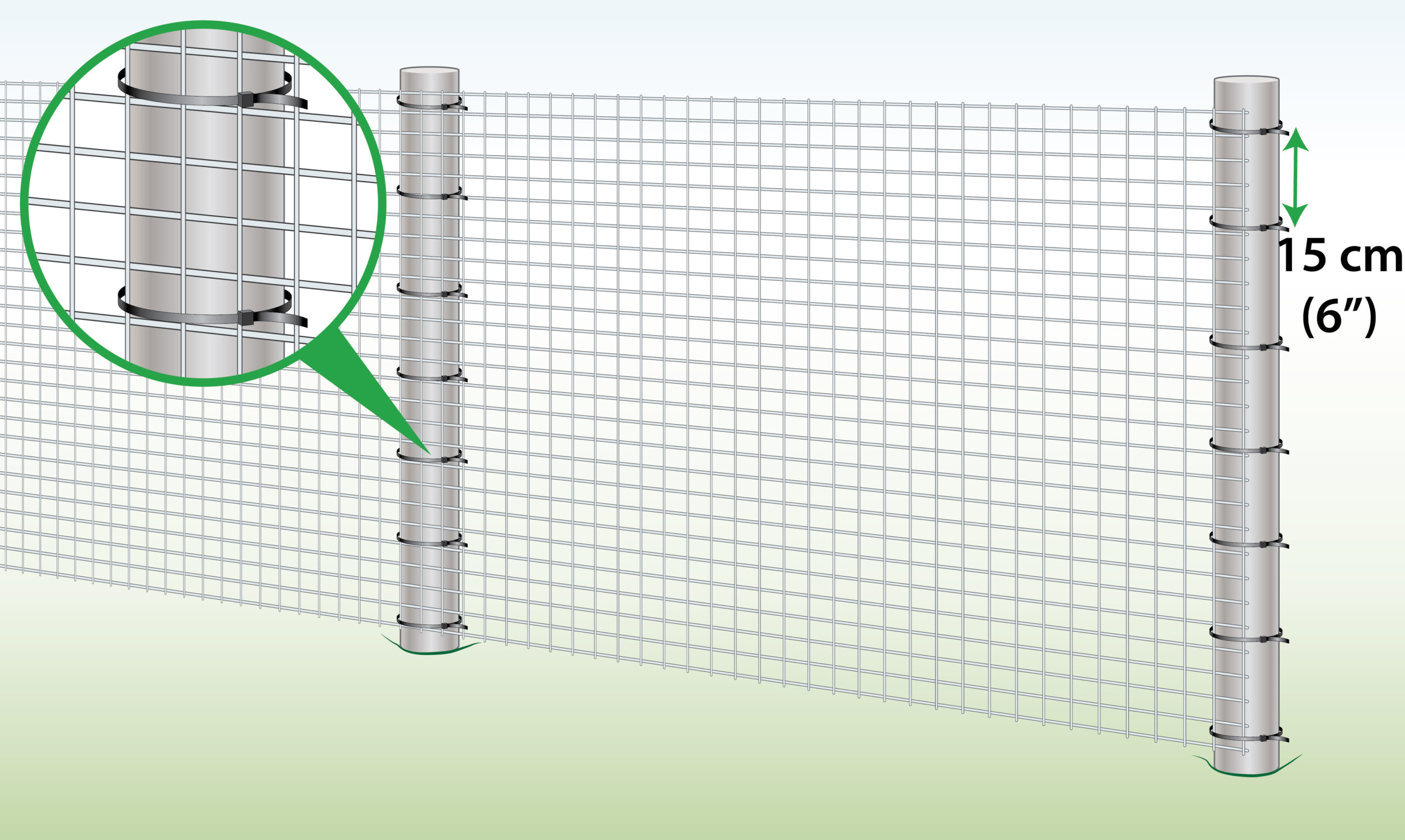 |
| Concrete Posts | 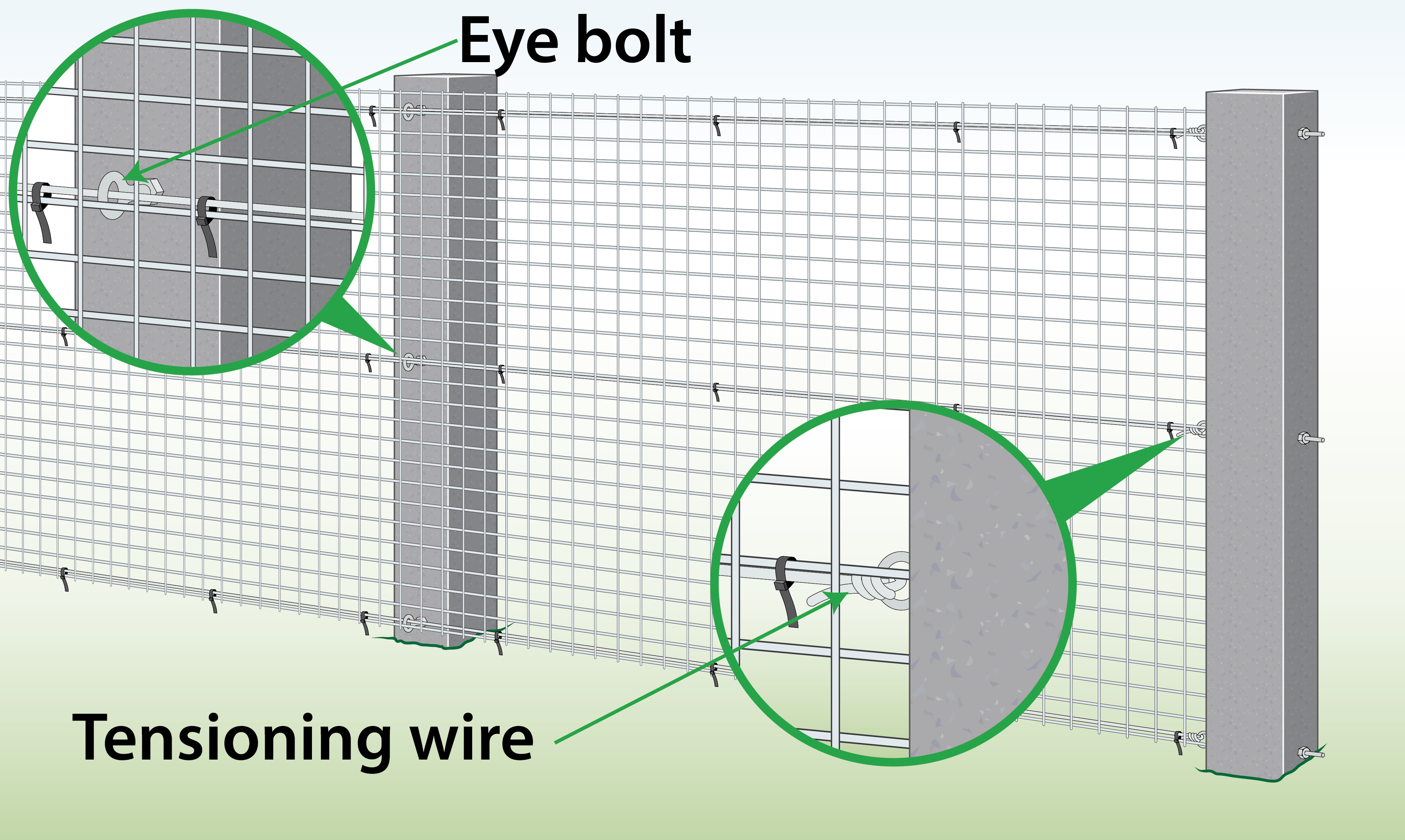 |
| Soil
(Pegs) |
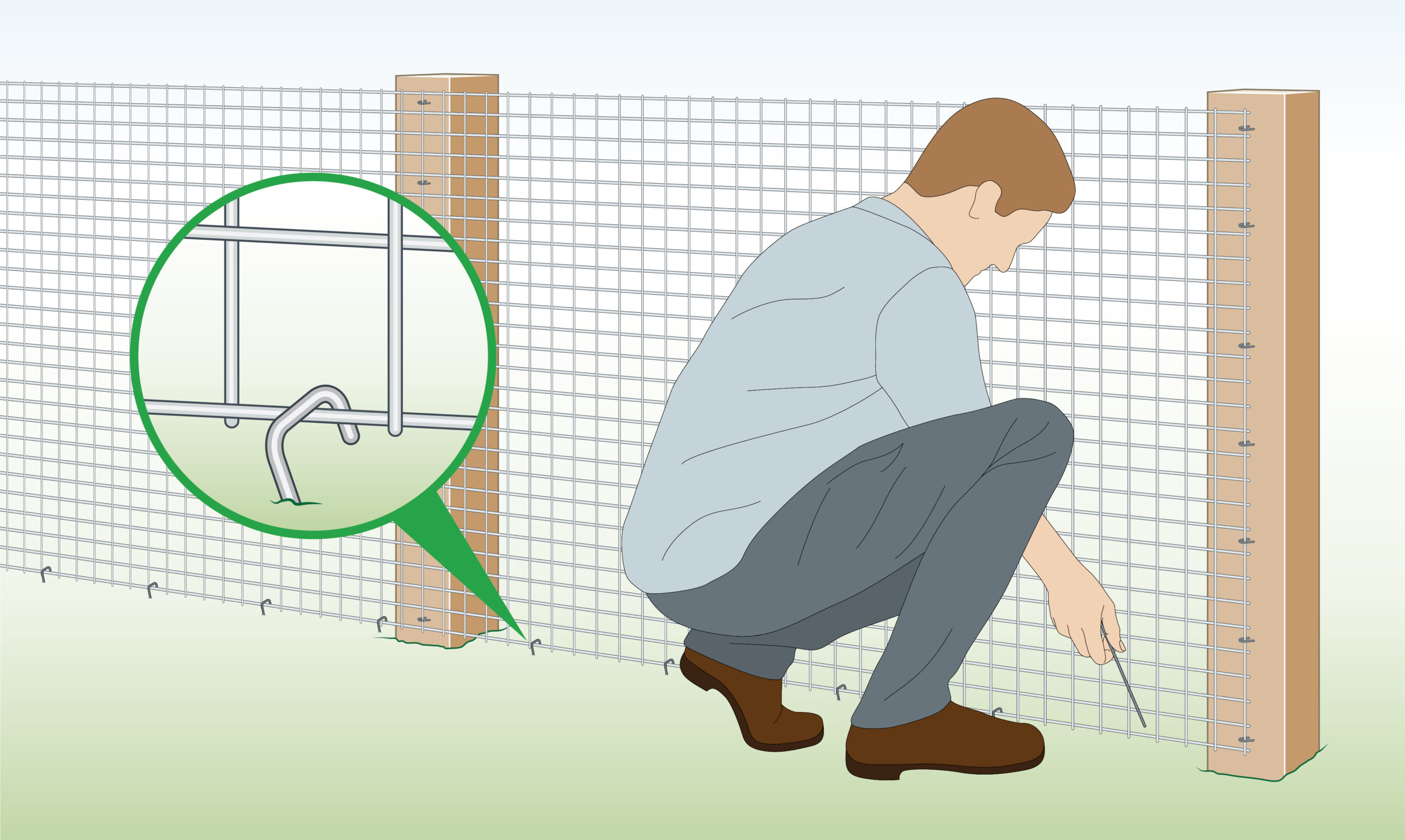 |
| Wire Fence
|
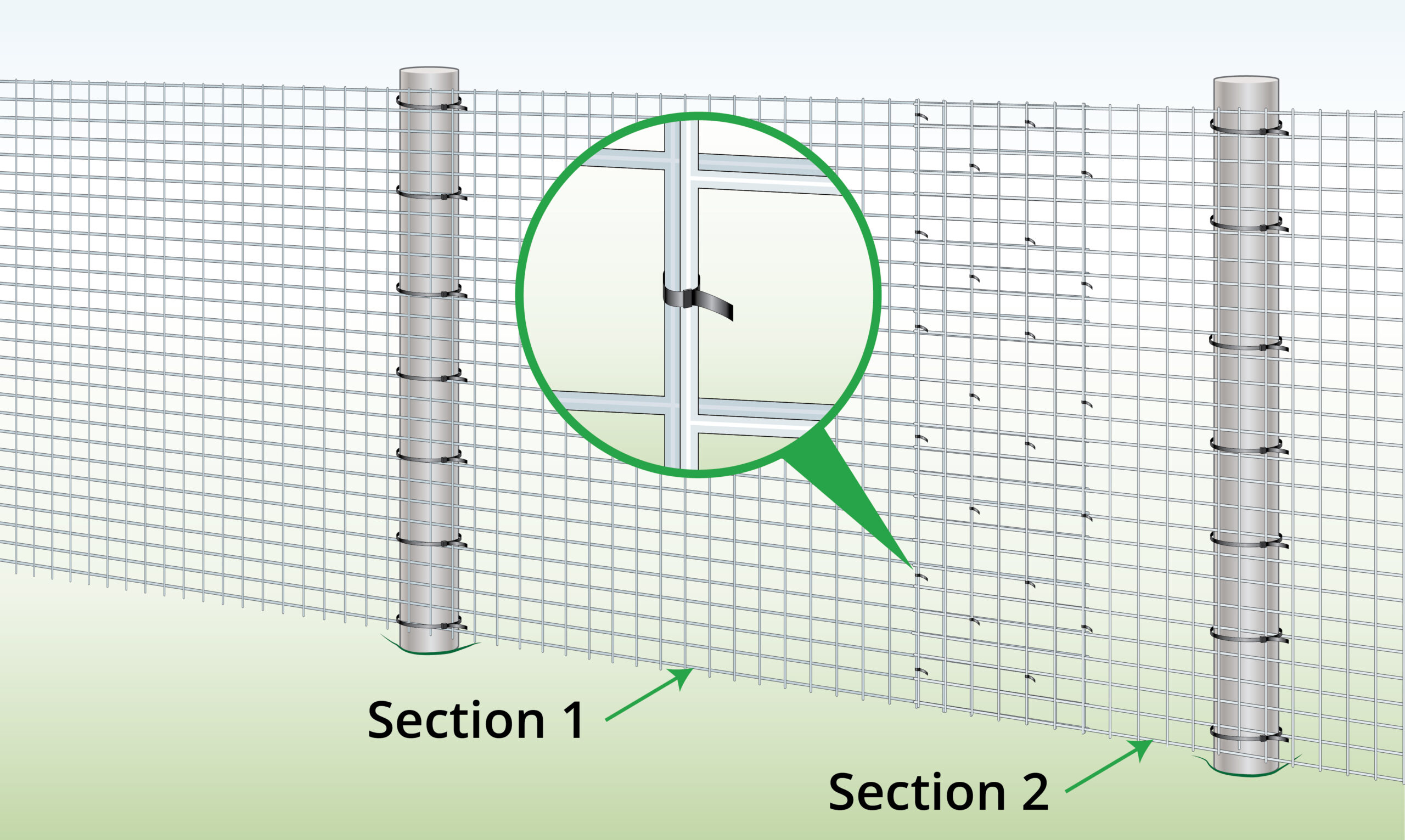 |
Installation
The following instructions show how to install a wire panel fence using T Posts.
| To Do | Explanation |
| Step 1 – Mark Area
|
Mark a line between the end posts. |
| Step 2 – Measure Distance
|
Use the panel to measure the distance between the posts. |
| Step 3 – Install End Posts
|
Drive the end posts 50cm into the ground using a post driver or mallet.
Ensure the holes in the posts face each other.
|
| Step 4 – Set in Concrete (Optional)
|
To achieve a stronger fence, place your posts in concrete.
|
| Step 4 – Check for Same Height
|
Attach a string between the end posts and check that they are the same height.
|
| Step 5 – Check for Straightness
|
Use a spirit level to confirm that the posts have been installed straight.
|
| Step 7 – Install Middle Posts
|
To install middle posts, repeat steps 3-5.
|
| Step 8 – Attach Panels
|
Starting at the end post and fasten the mesh using cable ties, which can be threaded through the holes in the post.
|
Metal Fence Panel Overview
| Galfan Coated | PVC Coated | |
| Max height | 6.6ft (202.5cm) | 6.6ft (202.5cm) |
| Max wire diameter | 5mm | 4.3mm |
| Security fencing | Yes – Security fencing starts at 2.5mm | |
| Perimeter fencing | Yes – for commercial uses we suggest 5mm thick wire | |
| Garden fencing | ||
| High-security fencing | See High Security for detailed information | |
| Dogs: keep in or out | See Dog Fencing for detailed information | |
| Animals: keep in or out | See Animal & Pet Fencing for detailed information | |
| Farm perimeter fencing | See Farm Fencing for detailed information | |
| School perimeter | ||
| Playground | ||
| Railways | ||
| Housing Estate | ||
| Inner City | ||
| Public railings | ||
| Industrial & Warehouse | ||
| High-security areas | ||
| Airports | ||
| Data Centres | ||
| Marine environments | ||
| Prevent climbing | ||
| Note | The taller the fence and the smaller the mesh holes the less likely the security fence can be scaled. | |
| Climbing difficulty | Medium | Medium |
| Max height | 1.8m (6ft) | 1.8m (6ft) |
| Min hole size | 75mm x 75mm | 75mm x 75mm |
| Max hole size | 75mm x 75mm | 75mm x 75mm |
| Increase difficulty | Install barbed wire at the top of your fence | |
| Increase difficulty naturally | Grow rose bushes up the mesh which has the added benefit of looking good. in addition, there are no height restrictions for rose bushes which allows you to make your barrier taller.
|
|
| Strength: Prevent cutting through | ||
| Note | The thicker the metal wire the less likely it is that the wire can be cut through. Machinery such as cordless angle grinders makes it impossible to create a 100% vandal-proof barrier. | |
| Max wire diameter | 5mm (6g)
Heavy |
4.3mm (9g)
Heavy |
| Can wire be cut? | Yes – all types of fencing can be breached using cordless angle grinders bolt cutters, etc | |
| Financial | ||
| Cost | ££ | ££ |
| Cost per sq m (starting from) | £3.29 | £3.29 |
| Discount for multi purchases |
– viewable on product pages & automatically calculated for you during checkout
|
|
| Minimum qty available to purchase | 1.8m | 1.8m |
| General | ||
| Delivered as | Panel | Panel |
| If the weight exceeds 33kg delivery will be on a pallet | ||
| Made in | UK | UK |
| Conforms to British manufacturing standard | Yes – see product category or pages to view specific BS EN standards | |
| Construction | ||
| Mesh construction | Welded | Welded |
| Hole size available | 75mm x 75mm | 75mm x 75mm |
| Wire diameter available | 3mm – 5mm | 3.8mm – 4.3mm |
| Length | Can be joined together to create any length required | |
| Colour | Grey | Grey |
| Average product weight | 2kg | 2kg |
| Strength and environment | ||
| Corrosion resistance | ||
| Life expectancy under normal conditions | 20 years | 20 years |
| Suited to Environments | C2 – C4 | C2 – C5 |
| Installation | ||
| Experience required to install | Low | Low |
| Speed of installation | Quick | Quick |
| Can be installed with wooden posts | ||
| Can be installed with metal posts | ||
| Can be installed with concrete posts | ||
| Qty of people required | 1 | 1 |
| Cut using | Bolt cutters | Bolt cutters |
| Handle with protective gloves | ||
| Installation instructions | Download | Download |
FAQs
What is PVC coating and what are its advantages?
Polyvinyl Chloride is a coating that offers similar properties to galvanisation in that it makes the material more resistant to the effects of weather, making it ideal for outdoor uses. The difference is that galvanised steel can sometimes feel rough or coarse, where as PVC coating offers a much smoother surface.
Can I use welded wire mesh to install shelves for my garage?
Yes, but as the material is not overly rigid you would need support from underneath in the form of wooden or metal beams.
Is this suitable for animal cages, including hamsters?
Yes, this product is perfect for larger animal cages such as dog and cat enclosures. The PVC coating gives the material a smooth finish making it more forgiving on animals. However, for smaller animals, e.g. a hamster, the hole sizes are too big and we would recommend something with smaller gaps.
Would this product be suitable as a pond guard?
Yes, if it was secured firmly to either fence posts as a safety barrier or across the top of the pond.
Which hole size would you recommend when building a small bird aviary?
For a small bird aviary, the 13mm x 13mm would be the most appropriate as some birds may be able to fit through our larger option.
Could I use welded wire mesh to protect my windows?
Yes. You would however need to attach it to some sort of frame in order to reinforce the mesh. For this we would recommend a wooden frame, using staples to attach the mesh.
What would be the best way to cut this product down to size?
Due to the material’s strength we would recommend something stronger than say a pair of scissors, but this product can be easily cut using bolt cutters or a good pair of wire cutters.
How do I fix this product to wood?
For securing wire mesh panels to wooden posts or frames, we recommend using U-shaped galvanised staples. They provide strong, reliable support and are ideal for outdoor fencing projects.
What are the common uses?
- Security cages
- Dog fencing
- Animal enclosures
- Aviaries
- Bird cages
- Pet hutches
- Cat fences
- Pond covers or protection
- Garden fencing

